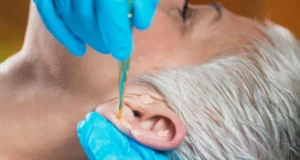Acupuncture is a Chinese medicine method that is based on the belief that a vital energy called ‘Qi’ flows through a network of energy channels in our body. The main goal of acupuncture is to balance the body and remove any Qi flow blockages so the body can heal itself. During treatment, very thin needles are inserted into the skin in strategic spots. Studies show that acupuncture helps reduce or eliminate nausea from chemotherapy, post-chemotherapy fatigue, pain, depression, and anxiety.
In recent years, oncology centers have found that integrative therapies such as acupuncture can improve a patient’s overall wellbeing as they cope with cancer treatment.









